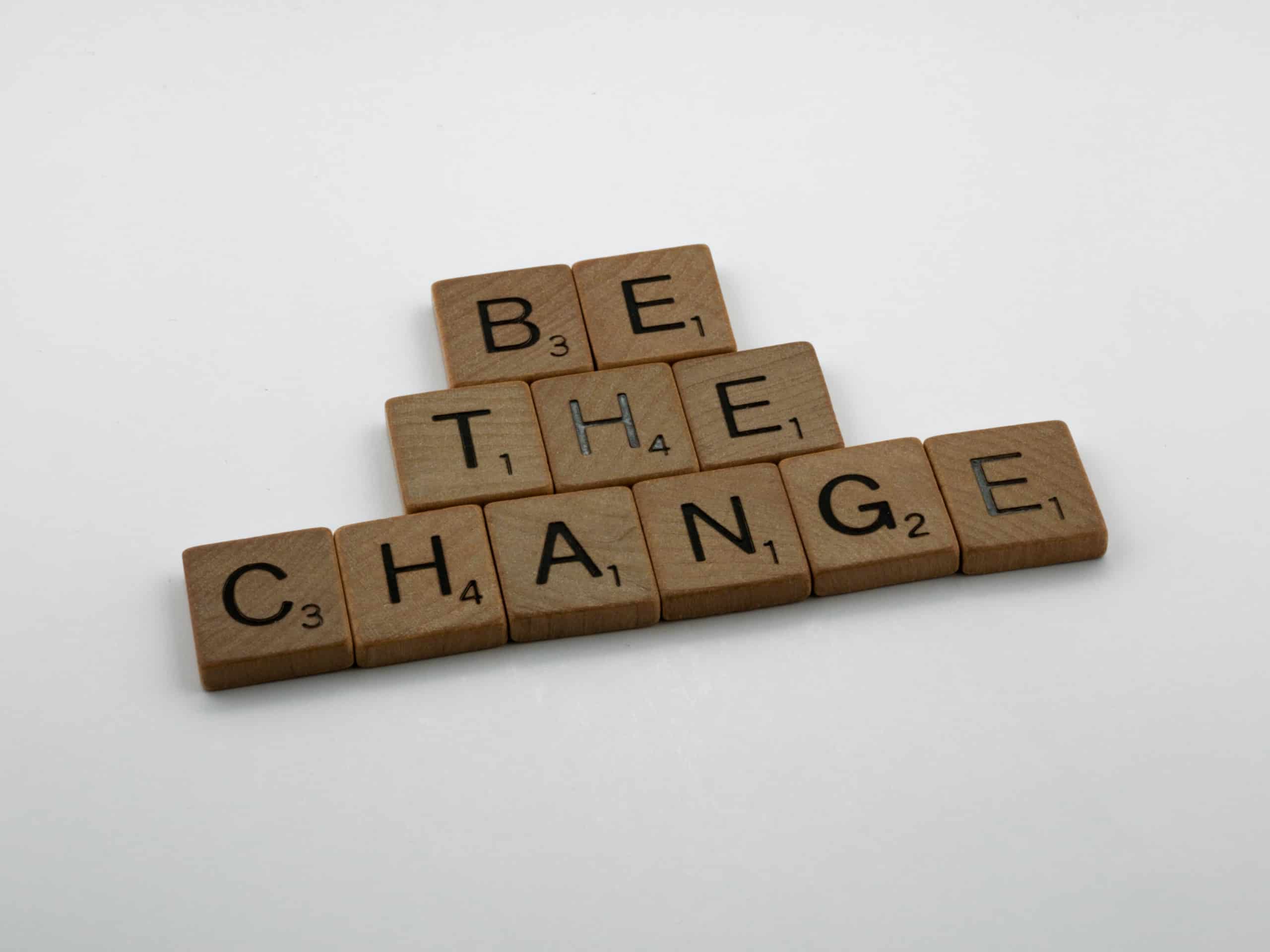What is Unconditional Responsibility?
Let me ask you… If I suggest taking unconditional responsibility in all aspects of your life, what thoughts and feelings come up for you?
Many of us get defensive at this idea. Sure, we’re responsible for plenty of things. But… unconditionally responsible? No way! What about other people? World events? Traffic? The weather? Viruses?
That’s a completely understandable and human reaction. And, I’m not suggesting you take responsibility for any of that. I am suggesting you accept unconditional responsibility for your response and intention, in every situation.
In this article, we’ll explore what unconditional responsibility in leadership and life actually looks like, including:
What is Unconditional Responsibility?
Unconditional responsibility means choosing to be a player rather than a victim (or rescuer or persecutor). It means getting yourself firmly in the CEO seat of your own life.
For many of us, the line between responsibility and blame has become skewed. It’s either the way we were raised, the type of work environments we’ve been exposed to, or both. When we’re said to be responsible for something, the underlying meaning is that we are at fault. We are to blame if, and when, things go wrong.
I want you to throw that definition out the window. It serves no one; least of all you.
Seriously. Visualize yourself throwing it out. Write it down on paper and slam dunk it into a recycling bin. Burn it if it feels right.
The idea that responsibility means you are at fault for things outside your control is, frankly, BS.
So… What does unconditional responsibility actually mean?
It means taking 100% responsibility for:
- Your intentions
- What you say and do
- How you respond to what others say and do
- How you respond to circumstances around you
Sounds simple, but not always easy to put into practice.
Let’s look at an example:
Imagine a leader of a sales team. The team had a sales target for the quarter, and the target was missed. Everybody worked hard, but a lot of things happened during the quarter that impacted the team’s ability to succeed.
In a victim mindset (i.e. not practicing unconditional responsibility) our leader might respond like this:
I tried, but it was out of my hands. There were huge changes in the market, many of our repeat clients made cutbacks, one of our best sales reps went on sick leave… How could I be expected to meet targets under those circumstances??
All of those circumstances may be true, but by taking a victim stance, no one is able to move forward. Our leader is stuck on what they can’t control instead of looking for opportunities to take control.
In a player mindset, taking unconditional responsibility as a conscious leader, our leader would look for the “fertilizer” in the situation; for how they could use it to grow and move forward. They would also practice self-compassion, recognizing that missteps are simply human. That might sound like:
There were 3 major setbacks this quarter. The market shifted, repeat customers made cutbacks, and one of our best reps went on sick leave. Those circumstances were out of my control, but based on what I’ve learned since, I can see some opportunities that I would seize on in this type of situation. For starters, I would direct resources to market analysis, or look into hiring an outside team for guidance on the market shifts. That may help with any loss of customers as well. I would also look into other financing options to retain customers. Regarding the loss of a sales rep, I would step in to fill that gap myself, or seek support from another team. I would raise these issues earlier, so that even if our target still isn’t achievable, there will be advance notice.
In that second scenario, our leader is working to focus on what is within their control to take unconditional responsibility for their response to what comes up. There’s no sense in taking the blame for what the Universe throws at us. We have no control over that! The responsibility falls on our response, and we have to seize that. Unconditionally.
Victim and Rescuer Modes as Safety Nets
Players focus on what they can control. Someone caught in victim mode only pays attention to what they can’t control. Someone in rescue mode only pays attention to how they are “needed” by others.
The Covid pandemic is rife with examples of this. None of us had any control over the virus or what came with it: the economic crash, mask mandates, curfews, service shutdowns, job losses, and so much more. On top of that, a war has broken out, the ongoing assault on body autonomy has heightened, new viral outbreaks are popping up… So much is constantly happening outside our control. There’s no shame in wanting to throw up your hands and say, “I’m out. I can’t do this anymore.”
In Conscious Business, Kofman explores the “benefits” of victimhood and how sliding into the role of victim protects us from blame, and protects our image. As a corporate and leadership coach, I’ve come across this tendency a few times. And I get it. Many corporate cultures actually cultivate victimhood by making it unsafe to make mistakes or speak up. It is definitely harder (though not impossible) to step into a player role in that type of environment.
But, there’s another “benefit” I’ve been seeing more and more. Victimhood can also feel like a soft landing for people who are exhausted by the state of the world. They’re burnt out by the constant stream of awful news and giving into victimhood lets them put down that horrible weight.
For those who slide into the role of rescuer, focusing outwardly can bring a false sense of control and protect them from having to face their inner fears and worries.
This is so deeply human. When we’re physically, emotionally, mentally, spiritually exhausted, these safety nets can feel like the perfect place to rest.
However, those safety nets erode our well-being over time, and put us at greater risk of burnout (or going even deeper into burnout if we’re already there).
Unconditional responsibility is a form of self care. It’s a practice that keeps you focused on your purpose, values and path, so that you don’t get sucked into the chaos and uncertainty of the external world.
The 6 Principles of Unconditional Responsibility
You must take 100% responsibility for:
- Your well-being.
It all starts with you. Yes, that means taking full responsibility for your intentions and responses. It also means you have a responsibility to take care of yourself! Ask yourself what you need in the moment. What is your body telling you? What thoughts and feelings are coming up for you? Are you getting enough sleep? Eating well? Taking ownership of your time? Advocating for yourself? Taking care of all areas of your life?
When you lead others, it is SO important to put your well-being first. It’s putting on your own oxygen mask, filling your own cup, or whatever analogy resonates with you. You have a responsibility – unconditionally – to ensure your energy stores are adequately protected and replenished. - Your intentions.
When you are clear on your intentions – what you want to create – each step you take will be aligned with your greatest good.
Ask yourself, “What is my intention?” Consider your big picture vision and core values. Ask yourself what steps you can take, in the current circumstances, that are aligned with your values and bring you closer to that vision.
As you move forward and encounter more external circumstances, keep turning back to your inner intentions for guidance. Keep asking, “What is my intention and how do I bring that forward?”
- Your response.
You may have heard of the “Yes, and” improv technique. Whatever comes up during a scene, actors have to say yes to it, and decide what comes next in order to keep things moving.
When a challenge arises, we can fight against it, run from it, or create from it by saying “Yes, and…” Acknowledge the challenge. Accept what is. That’s the “yes.” Your “and” is how you choose to respond; how you choose to keep the show going.
This could sound like, “Yes, there have been market shifts, and here are the avenues we can explore to mitigate that.” “Yes, we’ve lost a team member, and we still have a team of amazing people who can step up, and can call on external support so our team doesn’t burn out.” “Yes, some of our customers made cutbacks, and we can get creative in keeping them on board.”
Accept what is and take full responsibility for what you do next.
 Your understanding of responsibility.
Your understanding of responsibility.
It’s really common to equate responsibility with blame. Take responsibility for shifting that within yourself. A great way is to reframe it as “response-ability”.
The heart of unconditional responsibility is that you always have the ability to respond in your own way. It’s one of the few things that’s always within your control, but you have to make the conscious choice to embrace it.
Shifting your understanding in this way can be especially helpful if you – and/or the people you lead – find the idea of responsibility brings up feelings of guilt, shame or defensiveness. By reframing it as response-ability, you can bypass those limiting and totally unhelpful concepts, and redirect the full strength of your energy to where you can have the most impact: your ability to respond.
- Your self-worth.
You cannot tie your self-worth to outcomes. This is what keeps people stuck in the status quo. They think about what might happen, what others might think or say, and they feel their self-worth diminish. They freeze and do nothing, or stick to “how it’s always been done.”
It would be great if everyone in the world stopped tying worth to outcomes. If they valued the whole person simply for being human. If we all understood that worth is inherent and can’t be taken away.
Until that time comes – and to do your part in bringing that world forward – you must take unconditional responsibility for your own sense of self-worth.
This can be hard for leaders as we usually are held accountable for outcomes. But, accountability is not the same as worth.
Your worth comes from being human. That’s it. You are worthy of respect and compassion, of being heard, taking up space, making mistakes, working on your growth, asking for help… you are worthy of all of that, regardless of outcomes.
- Your impact.
Impact is deeply tied to intention. You cannot control how other people respond to you, but you are responsible for the impact of your intentions and your mistakes.
If you give into a moment of anger and speak sharply to someone, they aren’t going to be happy about it. They may respond with anger, or hurt, or maybe with neutrality, but from that point on, they no longer trust you, engage with you, or seek to work with you. You are responsible for the intention you brought to that interaction, and you are responsible for repairing the impact.
Let’s say you had great intentions going into a sales meeting, but you unknowingly said the wrong thing and the deal fell through. You are responsible for understanding how the mistake happened, what you can do differently in the future, and determining what you do next.
Unconditional Responsibility in Business

The leaders with the most positive influence in the business world never say “that’s not my job.” Nor do they take on the burden of things they can’t control. They understand that both approaches are just two sides of the same coin. Both will lead to unhappiness, disengagement, and ineffectiveness.
Instead, they fully embrace the concept of unconditional response-ability.
As a leadership skill, this matters both internally and externally. It matters to employees and team members to see leaders stepping into response-ability, just as it matters to customers and clients.
Ask yourself how your organization has stepped into response-ability over the past 2+ years of upheaval. What has the experience been for employees? What have your customers seen? What can you carry forward and what can you improve?
What Do You Gain by Taking Unconditional Responsibility?
When you embrace this concept, you set yourself up firmly as the CEO of your life. You make the conscious choice to take charge of how your story unfolds, instead of letting yourself get swept along in the chaos and unpredictability of the world around you. It means choosing to create YOUR world, the way YOU want it. As a leader, it also empowers you to show up with true conscious leadership, which builds trust and has a positive impact on everyone around you.
In this way, you will…
- Feel a sense of ownership in your life and work
- Feel more connected to the world around you
- Feel more at ease in the world
- Have greater clarity in making decisions
- Be able to determine your next steps more efficiently
- Be able to negotiate more effectively
- Develop greater self-management
- Cultivate interpersonal relationships built on trust, respect and a mutual desire to see each other succeed
- Lead others with confidence, compassion and positive influence
- Be able to set better goals with actionable steps
Unconditional responsibility is a practice that can carry us through even the most difficult times, and propel us forward in times of relative calm. It’s about taking full ownership of your life, which only you can truly do.
If you would like guidance and support, for yourself or team, in embracing unconditional responsibility, I invite you to connect with me.